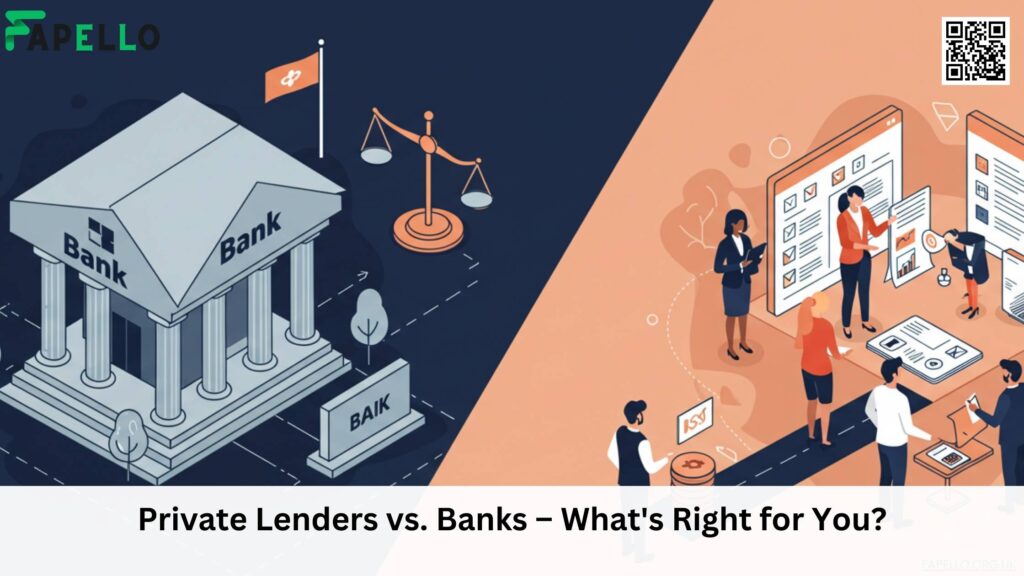Borrowing money is not as easy as it sounds. There are many important factors to consider before making a decision, like determining the amount of money you need, checking your eligibility, the monthly repayment terms, etc.
This also includes who you’ll borrow from. There are two main categories of lenders: private lenders and financial institutions. Financial institutions include high-street banks, FCA-approved finance companies such as credit unions, or Salad, a CDFI (Community Development Financial Institution) that offers help to those who need it the most.
Private lenders are people or businesses that offer financial support for business loans, mortgages, and personal emergencies. They don’t follow conventional banking practices and are more flexible and faster in their approach. Peer-to-peer loans, loans from family members, and private equity funds are all examples of private lending.

Whether you choose to use private lenders or take a more conventional route will depend on your unique needs and circumstances. If you are unsure about which lender to choose, we’ve got you covered. Let’s explore the right option for you!
Loan Approval Process
Banks have a long approval process, especially for personal loans and mortgages. New-age online lenders have comparatively quicker approvals, especially for payday or emergency loans. Banks and other FCA-approved lenders have stringent checks and rigorous approval processes.
High-street banks require a good credit score (580 and above) and numerous documents to approve a loan. This entire process can take several weeks and even months (if applying for a high-value loan). Despite this, your loan application may still get rejected.
In this regard, private lenders are much more flexible and have fewer approval criteria. Loans from private entities can get approved in a matter of days.
Banks are ideal for people with a good credit score who don’t need quick cash. If you are someone who needs immediate financial help, don’t have any credit history or have a poor credit score, private lending may be the best option for you.
Interest Rates and Borrowing Terms
As banks and other financial institutions are regulated by the FCA, they cannot charge exorbitant fees and interest rates. For payday loans, the FCA has capped the interest rate at 0.8% per day; lenders can not charge beyond this. Your credit score and past borrowing history can also influence your borrowing terms.
Private lenders often levy a higher interest rate. It is the price you pay for convenience, faster approval and a flexible application process. This is because these lenders are taking a certain degree of risk in lending their money to someone who might seem like a high-risk borrower (poor or no credit score and financial uncertainty), and they offset it with higher interest rates. They might also levy fees and other charges, and sometimes, the borrowing term is shorter than traditional loans.
Banks are a better option if you want a more cost-effective debt; however, if urgency overrides affordability, private lending might seem like a fair choice.
Credibility
Most high-street banks have a long history, and many people have trusted them with their money over generations. New-age banks and financial institutions are also backed by regulatory bodies. Any discrepancies can be easily reported, giving an added layer of security.
On the other hand, private lenders are either private citizens or small businesses that function without any proper regulations. It’s better to use a traditional lender if you need peace of mind and are concerned about losing your hard-earned money to fraud.
Private Lenders Vs Conventional Lenders
Here’s a deeper look into the different scenarios where it may be ideal to choose either private or conventional lenders. Let’s look at a few examples:
1. You require quick cash: Choosing a private borrower is the better option.
2. You have a high credit score and an excellent credit history: Traditional lenders are a much better choice.
3. You need competitive borrowing terms: Banks offer competitive rates compared to private entities.
4. You don’t have a regular income (freelancer, consultant or entrepreneur): Private lenders might be more flexible with approval criteria.
5. You seek security with your debt: Banks are more credible than private lenders, as they are accredited by regulatory bodies.
Wrapping Up
Borrowing often comes with its own set of stress and worries. However, making the right choice of lenders and staying updated with your repayments can help you avert some of the stress. The right lender will make the borrowing experience much more comfortable, helping you mitigate the financial crisis without going broke.
Due diligence is required no matter which lender you choose. Understanding the borrowing terms, repayment terms and interest rates will help you make an informed decision.
Proper financial planning can often help you avoid the need to borrow, which includes having an emergency fund, budgeting your monthly expenses and saving towards retirement. Financial knowledge is the difference between living comfortably and living in economic uncertainty.
Source: https://fapello.org.uk/






